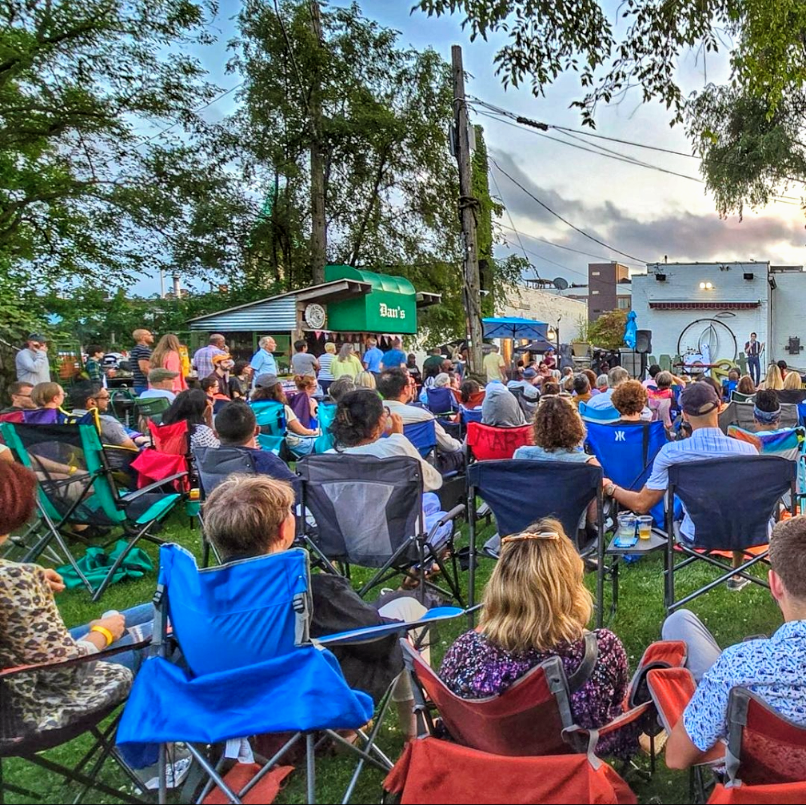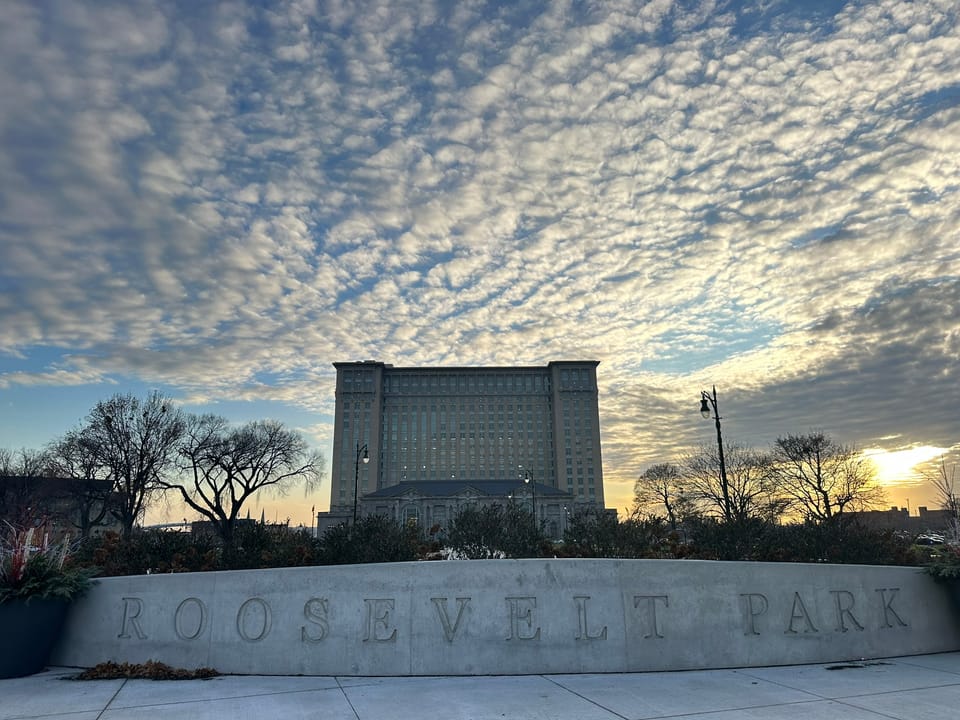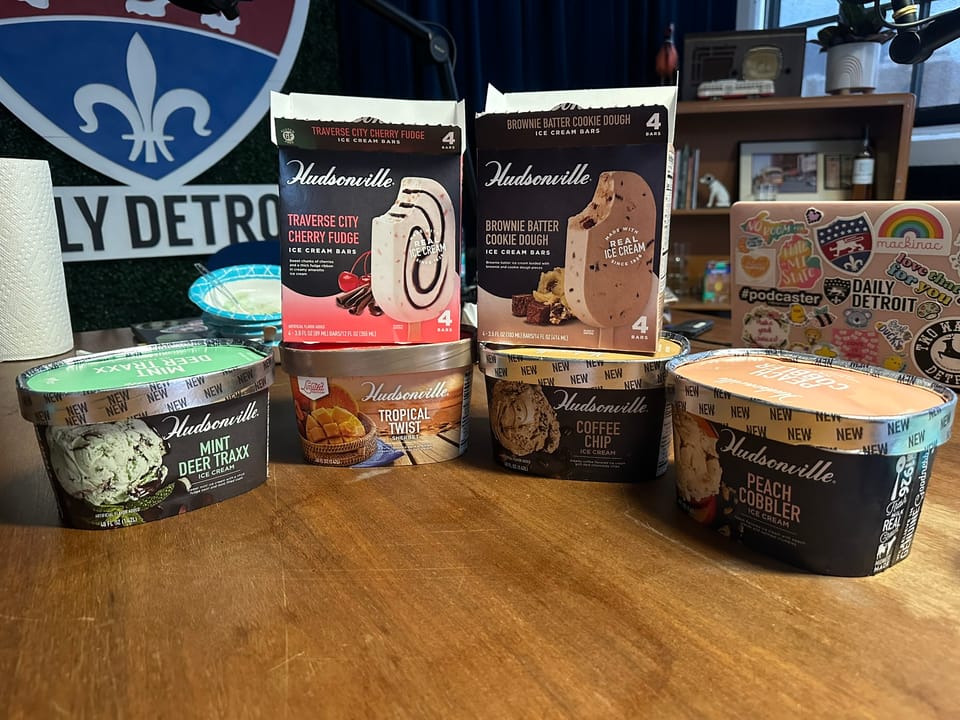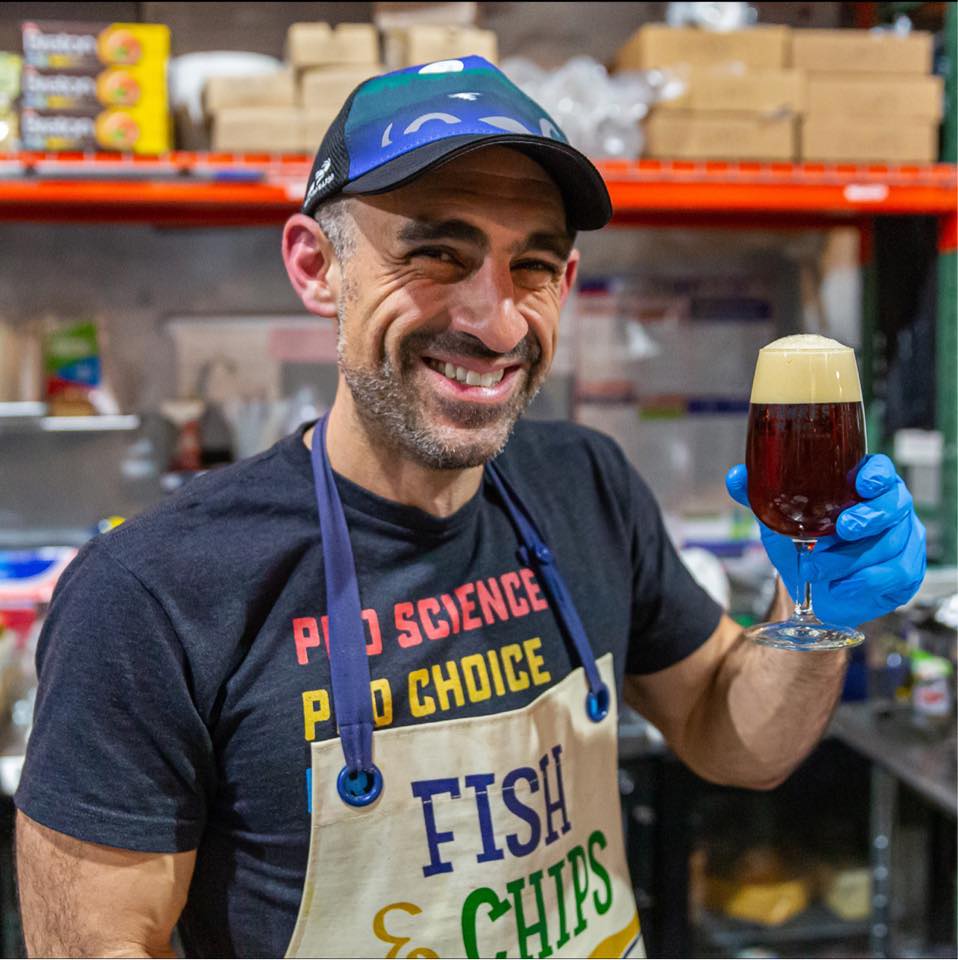In this episode, Jer talks with Dena Walker, the manager, and Mickey Lyons, a frequent guest and local historian, about the iconic Detroit bar, The Old Miami.
Celebrating its 45th anniversary, The Old Miami is described as a “dog park for humans,” a unique dive bar that has become a fixture in the Cass Corridor.
You can download the episode here, and scroll down for an automated transcript of the conversation.
A place with a spirit of zero judgment, it embraces of a diverse crowd of regulars, artists, musicians, and tourists, and how it has survived and thrived for so many years.
Dena shares how the bar embraces the Detroit vibe and history, where nothing feels pretentious.
The episode also covers Old Miami's place in the community and its 45th anniversary celebration featuring a luge festival benefiting Little Blessings, a horse therapy ranch for veterans, on Saturday.
More details: https://www.instagram.com/p/DFbJfEQvebt/
You can find The Old Miami at 3930 Cass Avenue in Detroit.
Conversation transcript
This transcript was automatically generated and may contain minor errors. Please refer to the orignal audio for any quotation.
Jer Staes: Joining us at the Daily Detroit Studio at TechTown, two friends of the show to celebrate, I think, one of the greatest establishments in modern Detroit history, the Old Miami. You know, it's 45 years that this place, that I call with love, a dog park for humans, one of the best dive bars in town. 45 years. Joining me is the manager, Dena Walker to my left. How are you? Welcome to Daily Detroit.
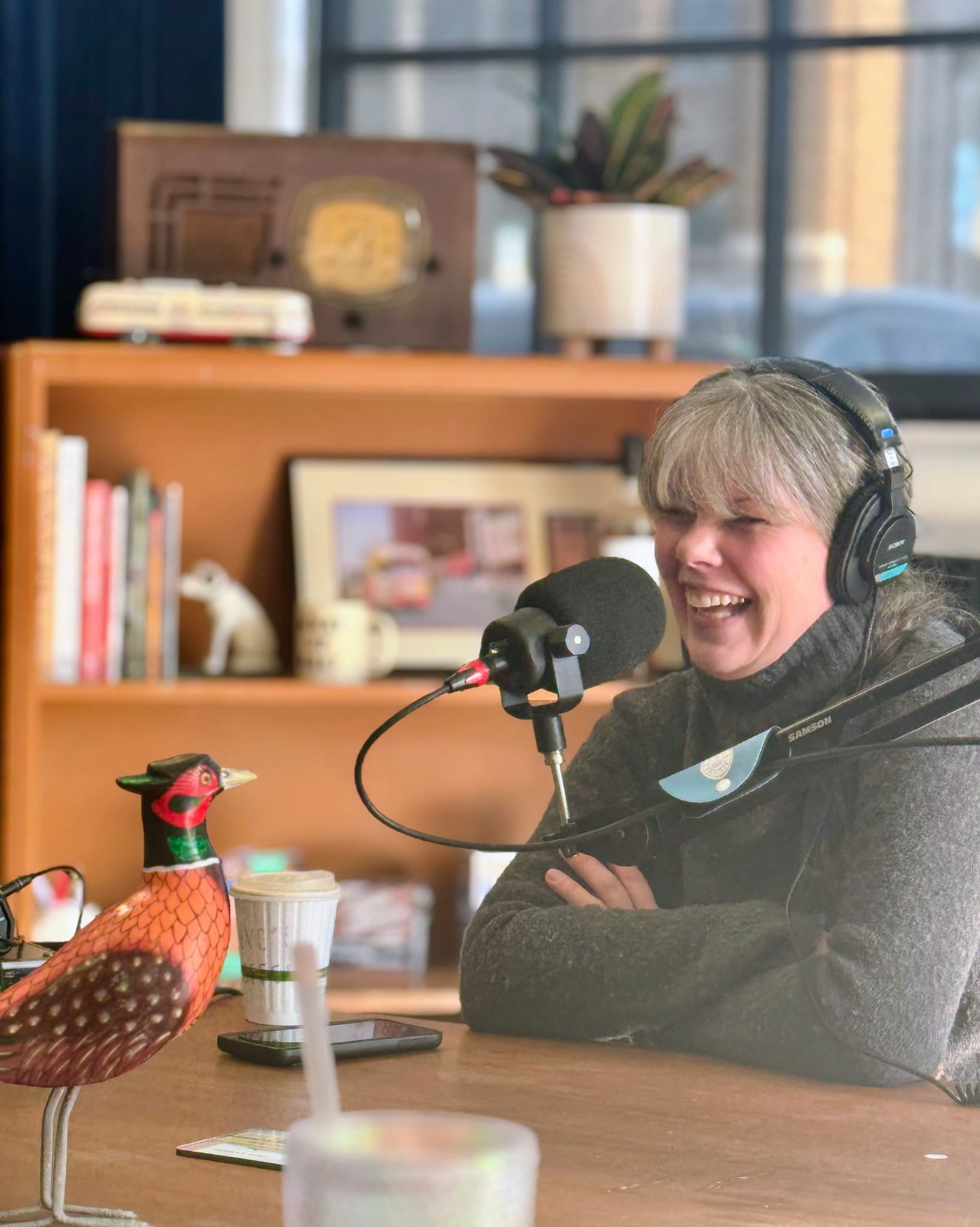
Dena Walker: I'm wonderful. How are you?
Jer Staes: Good, good. And then to my right, a voice that you may know if you've been listening to the show for a while, author and archeologist, Mickey Lyons. Good to see you.
Mickey Lyons: Hey, Jer.
Jer Staes: Hey, I just want to tell listeners, too, there is an old Detrola radio behind me. So thank you, Mickey. I haven't had a chance to see you in person on the air. Thank you for that radio. It is a huge addition to the studio.
Mickey Lyons: Oh, well, I'm glad it's found a good home.
Jer Staes: Of course, of course. All right, so Old Miami, how did this place come together? Because you look at it and you're a veterans bar, and then sometimes it's like cool kids, and then sometimes it's like college students. There's so many personalities to this place. Heck, I remember my dad, who lived in the Cass Corridor, used to drink at the Old Miami.
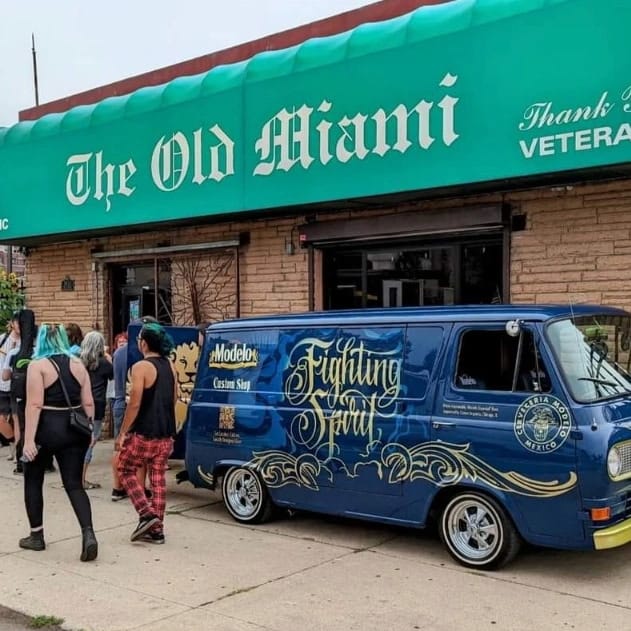
Dena Walker: Oh, yeah. So, Danny bought the building after working in the railroad, um, and being a Vietnam veteran. Uh, and then he, um, it was a burnt-out building at the time. It was called the New Miami for a while.
Somebody firebombed it. And he spent many years, um, kind of piecing it together. But they, he and Julie have always just wanted to make sure that people have a place where they feel safe and welcomed in the Cass Corridor.
And I feel like that's why the vibe there is just so many different people come in. Artists, and musicians, and veterans, and, uh, I mean, literally everybody comes in.
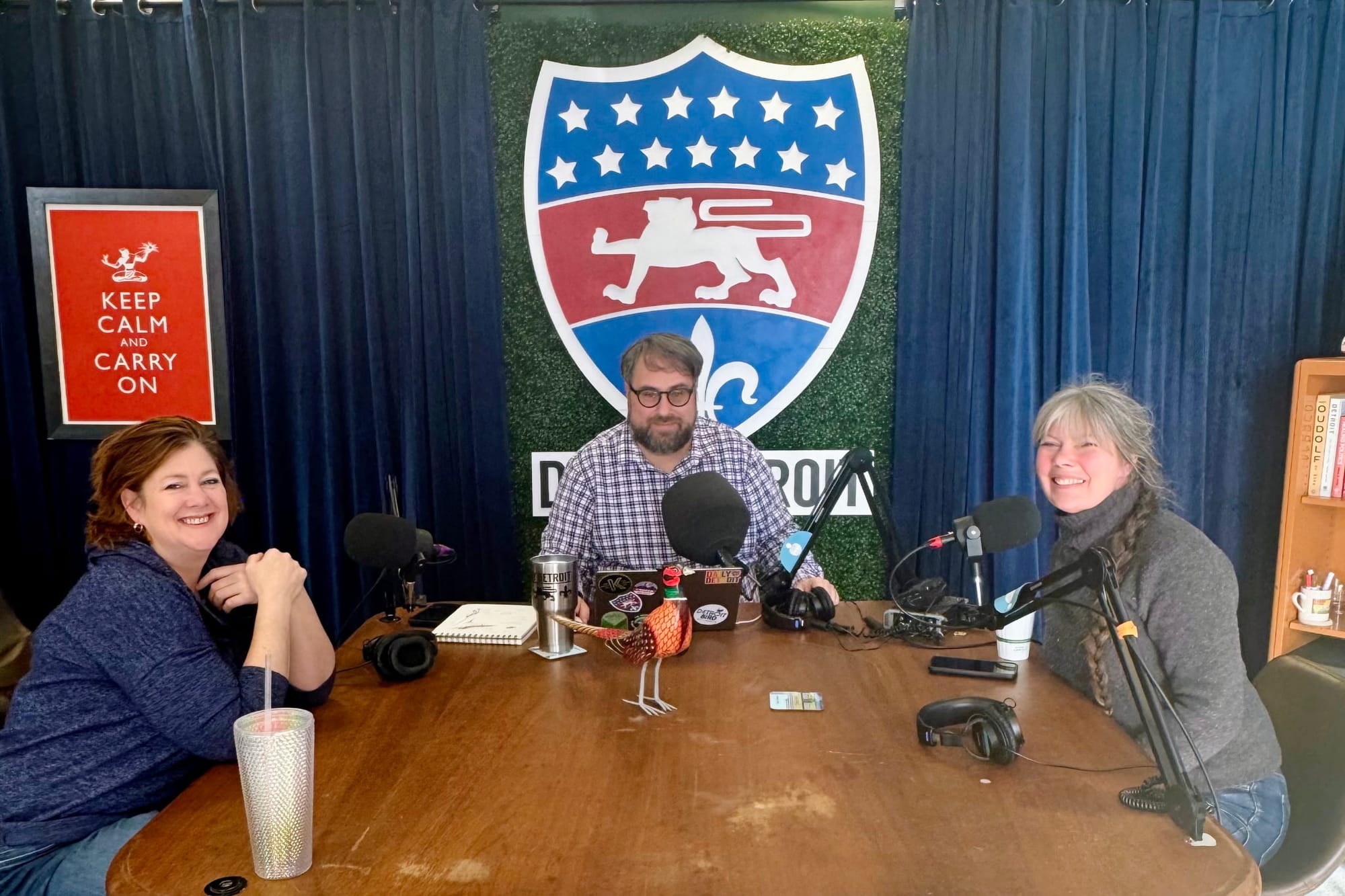
Jer Staes: I think “pieced together” is a great way to describe it because it's kind of a collage of Detroit history.
Mickey Lyons: Yeah, it absolutely is. And you can see the kind of history that has evolved in the 45 years that they've had it, you know. That's the great thing about the home-grown bars is, you know, they, they bring everything in as they acquire it. And I get the impression that Danny and Julie are kind of like little magpies of Detroit history.
Jer Staes: [Laughs]
Mickey Lyons: Oh, shiny! This deserves to be in the backyard!
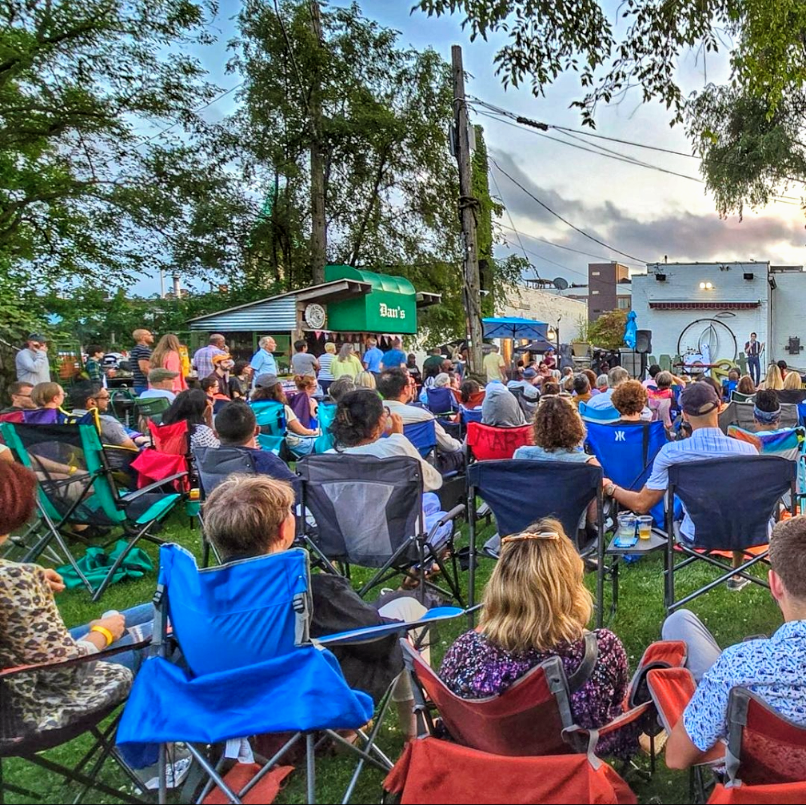
Dena Walker: Yeah, and that wall behind the bar of all that, we still get people that bring in, you know, patches or pins or brought their pin and patch 20 years ago, and want to know where it is on the bar, and we look for it.
Jer Staes: That's cool.
Dena Walker: We don't take any of that down.
Jer Staes: So, Miami stands for something, right?
Dena Walker: Missing in Action Michigan.
Jer Staes: Okay. And how has, how is it? Like blending all of these things together? Because it's so often in Detroit, it's like, what's the vibe? Is it this group or that group? But it's all the groups in so many ways. How does that come together?
Dena Walker: Right. We're definitely like, I hear it a lot, people, you know, visiting or coming back to Detroit, like they get off the plane and we are their first stop in the city because the place that they miss or they've heard about, or whatever. Um, and I just, like, I just think it's that, um, working so hard to make everyone feel welcome that walks in the door. There's no, like, we welcome sports fans, we welcome, you know, every type of music. We try to book different stuff.
Jer Staes: Yeah. It reminds me of a lot of ways the spirit of New Orleans, where it's like, everyone's welcome and be nice or leave.
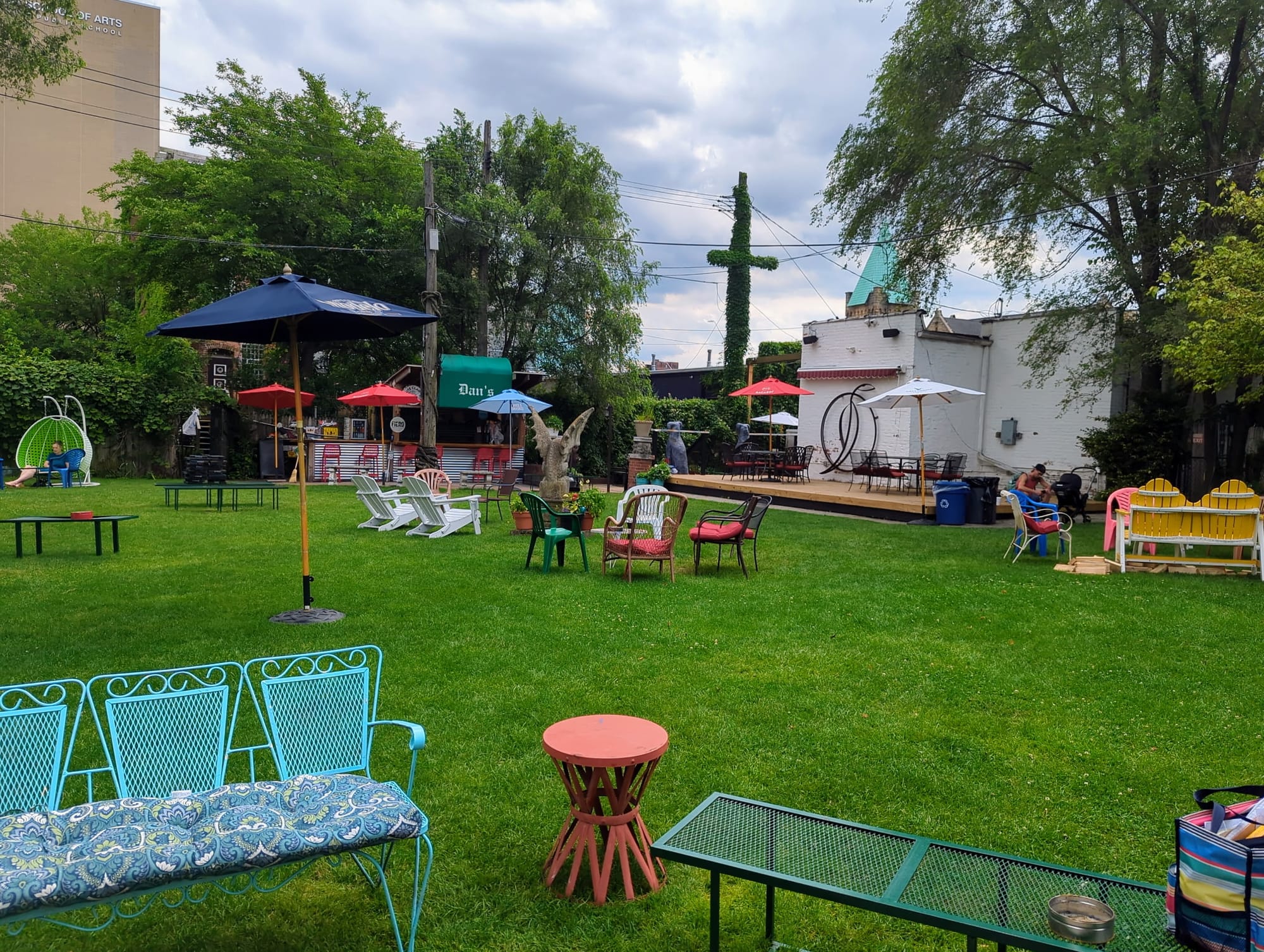
Dena Walker: We do have a sign that says that in the bar, so.
Jer Staes: You know, Mickey, you have done so many articles and, and research into Detroit bar history. What do you think helps set Old Miami apart for it to have this longevity of 45 years?
Mickey Lyons: I think a lot of it is what Dena was talking about, you know, the welcoming spirit, the zero judgment. To be able to survive in the Cass Corridor, now, wherever we're calling it. Um, to be able to survive, you know, to open up, to survive, to thrive, is, um, it takes a certain fortitude and it takes a certain tolerance that I think still shows up, uh, in the spirit of the Old Miami with whoever's there, whoever's welcoming.
Jer Staes: When it comes to running the bar, what are some of the things that you've learned in the last few years? Because you're, you, you didn't come with the bar. They didn't, you were not born at the bar.
Dena Walker: Not even from Detroit.
Jer Staes: Yeah, but you've definitely found a home here.
Dena Walker: Yes.
Jer Staes: And so what about it has to you, has like that you've, you've learned and grown for yourself through this journey?
Dena Walker: Right. Well, I've bartended in, um, seven countries and many states and, um, I the Old Miami is special. Like, it it definitely was my first stop in Detroit. You walk in, it's, it's a cool dive bar when you go inside because you can really feel all the history. But you know, you can feel the 45 years when you walk in. Um, but when you go in the backyard, you're just not expecting that green space back there. And then that also has a very like cultivated, homey, I guess nothing there feels like pretentious at all.
Jer Staes: Nothing whatsoever.
Dena Walker: Not one thing. Right. I mean, I think about the, uh, the little, uh, waterfall fountain in the back. Uh, or you know, the homage to Detroit sports teams or the back patio porch that ends up being an impromptu stage at times. And that kind of green space is so important in a city fabric, I think.
Dena Walker: I think so, too. Um, I love the "dog park for humans," because it's very fitting.
Jer Staes: How have you been able to keep so accessible on things like pricing over the years? Because one of the things that everyone loves about Old Miami is that you can access this dog park for humans, but it doesn't cost you, you know, you're not gonna, you don't have to spend $50 to on the fancy as cocktail. You can go in there and get, you know, a gin and tonic, a Jack and coke or whatever, and just go enjoy the thing. And it, it, the pricing alone helps make it feel accessible.
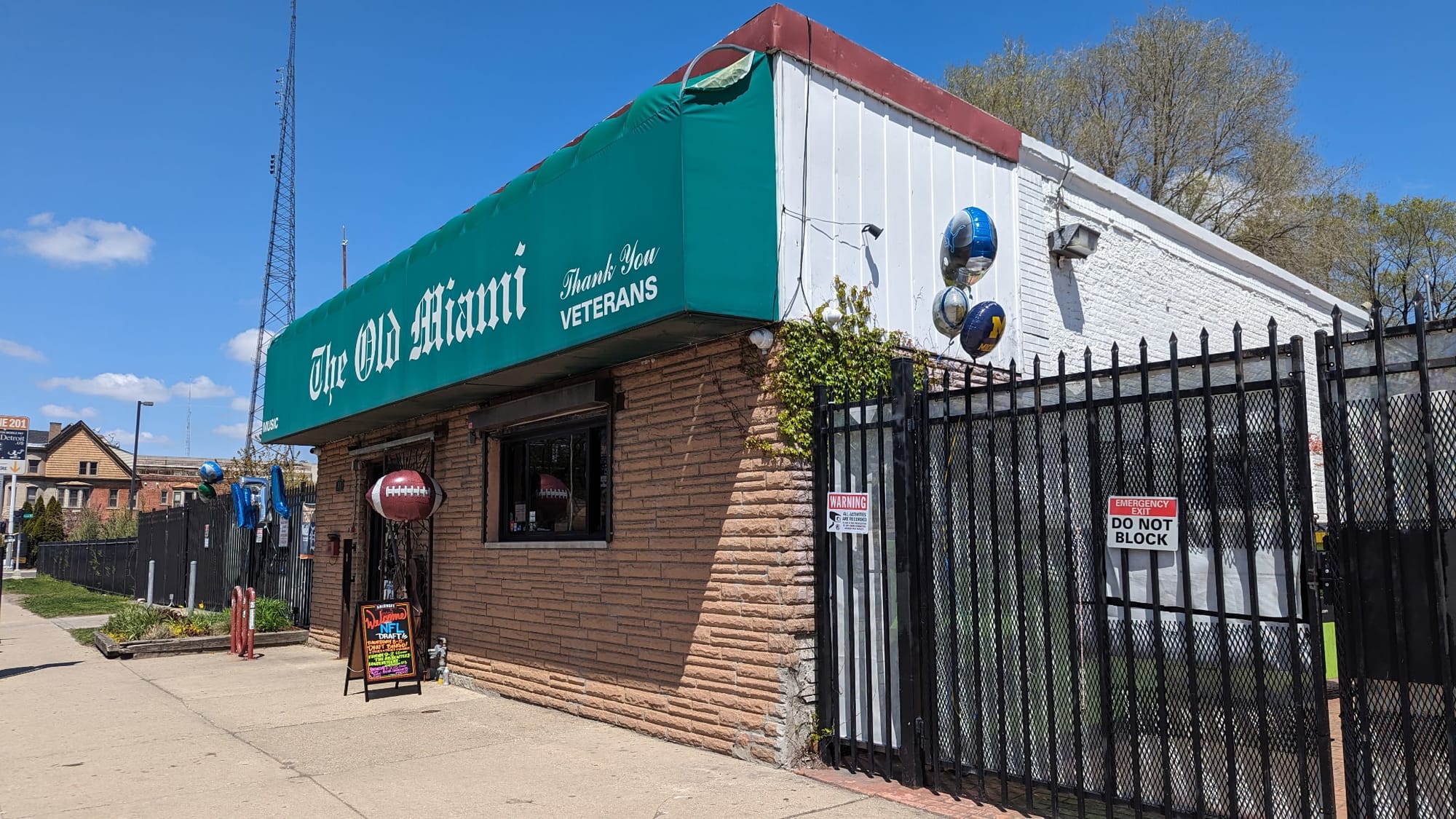
Dena Walker: I think because we've kind of stayed in an "and" bar, we didn't like buy into the cocktail revolution or the all that that happened. It's like, Jack and Coke, vodka and soda, like it's just.
Jer Staes: Beer and shot!
Dena Walker: And shot, yes. Beer and whiskey, yeah.
Jer Staes: What is, I'm so curious. So a bar like this, what are like the kind of like top sellers? What what do most people go for?
Dena Walker: Black Label and a shot of Four Roses. It used to be Jim Beam, but Four Roses has taken over. If the Old Miami had a drink or a cocktail, it would be a Carling's Black Label beer for $2 and a shot of Four Roses.
Jer Staes: Wow.
Dena Walker: So, so the cocktail revolution has hit just a little bit. We've, we've done up to Four Roses. Yeah. We're getting sophisticated in our tastes.
Jer Staes: So for people who don't know, why don't you kind of like deploy that out for people a little bit in like the hierarchy.
Mickey Lyons: Oh, in the hierarchy? Oh, yeah, you know, it, it depends like what, what, what the real shot is, you know, what the cool shot is. Uh, Four Roses is just, you know, everyone accepts that it's sort of a well-designed bourbon and, uh, but it's not overly pricey or pretentious. I mean, that can be.
Dena Walker: I think it's the best low-cost bourbon there is out there.
Mickey Lyons: Right.
Dena Walker: Yeah.
Mickey Lyons: They used to call it just yellow label, but now it's Four Roses.
Dena Walker: Their single barrel is excellent. We don't carry it. But if you ever want to show up somewhere with a $20 bottle that's impressive, their single barrel is worth it.
Jer Staes: You know, what is it with numbers and booze? Because I remember the old, like, rye whiskey, when I read old books, it was Three Feathers for newspapermen in Detroit.
Mickey Lyons: I have never heard this.
Jer Staes: Yeah, Three Feathers was, was the, was the jam at the Detroit Times and other places.
Mickey Lyons: Jer just dumped me on a booze and history question. I'm embarrassed. Wow, okay.
Jer Staes: I didn't know that either.
Mickey Lyons: Was that, was that the brand?
Jer Staes: I don't even get it anymore. Yeah. It was just a brand.
Mickey Lyons: Oh, I thought it was the pour, like, three fingers.
Jer Staes: Detroit's been going through a lot of changes the last few years. How has Old Miami kind of both embraced and also stayed to its, to its roots?
Dena Walker: Well, I feel like it's because Dan and Julie still own the bar and, and have owned it for such a long time that they're still involved in a lot of the every day decisions. So, um, it's, it's their dream. All, all they wanted to do was just have a place where people felt comfortable. And, um, and bands got to play and people got starts and opportunities and things like that, and, uh, we just like constantly stick with that, I guess, basically mission statement from the beginning.
Jer Staes: That might say "North Star" in the corporate world.
Jer Staes: There's been a lot of history in that area, too.
Mickey Lyons: Yeah, there has. Um, I remember I interviewed Dan a few years ago, and the stories that he was telling, some of them most definitely cannot be repeated on the radio. That's for sure. They're really fun. Uh, but he said he basically, when he came in, you know, because he was from the area, um, he knew what he was getting into when he bought this space. So he came in and he told the people running drugs and prostitution rings, you can have the whole rest of the neighborhood. This block from here to here is mine. You stay out of my business, I'll stay out of your business, and then everyone just kind of respected that and that was that. So, you know, he's, he's kept that integrity to the bar, you know, while being old school Detroit and holding firm with, you know, you don't cross a line and there is a definite line.
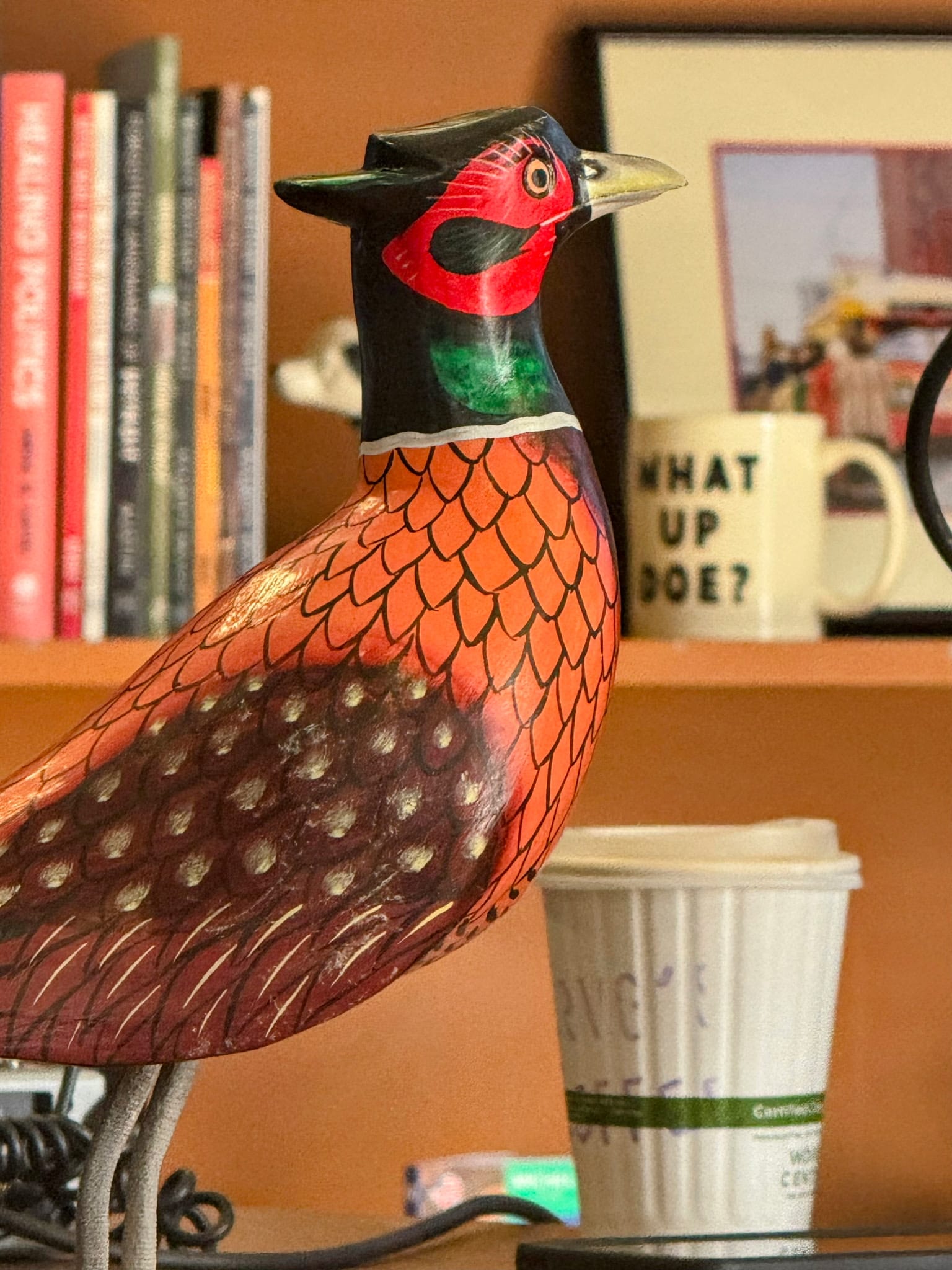
Dena Walker: He is definitely a very tough man, especially back in the day because he was in the railroad union. So he was a union fighter. And then, um, and that's, he was in all of that with Rodriguez, like before all of this started.
He's an artist himself. He's actually having his first show coming up in May, but it's going to be in Grand Rapids. But he's like an incredible folk artist. So I think he's, he's done all these kind of like tough things, like being in the Vietnam War and be a union leader for the railroad and, um, run a bar in, in what was determined to be Detroit skid row for a while.
Jer Staes: It's like Detroit grit before the Lions. Barry Sanders, and Campbell, and all that other stuff. That story of Rodriguez is really fascinating. It feels like he's at the Old Miami the whole time, you know. Uh if people don't know, there's a great movie about how this artist from Detroit became big. I think it was South Africa?
Mickey Lyons: South Africa.
Jer Staes: South Africa and completely unknown here.
Dena Walker: You would not believe the amount of people, especially right before he passed, that'd come into the bar just expecting him to be sitting at the bar.
Jer Staes: Wow.
Dena Walker: I was like, he's a little, he's, he's a little old for that right now.
Jer Staes: He doesn't actually live here. Yeah.
Dena Walker: Yeah, yeah, he doesn't, you don't just keep them in a storeroom.
Dena Walker: [Laughs] Just bring him out.
Jer Staes: You know, what is part of the allure?
Mickey Lyons: I was in there last Monday, recently. I stopped in, and just in the, you know, don't judge, it's my job. It was four o'clock on a Monday afternoon. And just in the time that I was there, we had a group of what seemed very obviously to me, tourists, who had read about it or heard about it somewhere and came in and were just like looking around, taking pictures in the corners, taking pictures of the Rodriguez sign. We had a couple of regulars who really kind of did seem like they lived there and probably went to sleep in a closet. Um, and we had just, you know, just this wide group of folks who just roll in and out and sort of make it their own.
Jer Staes: You know, if somebody is hearing this and they haven't been to Old Miami before, what are your first timer tips? First timer, you say, okay, I'm gonna go this place over on Cass, I'm gonna check it out. I've never been, first timer tips.
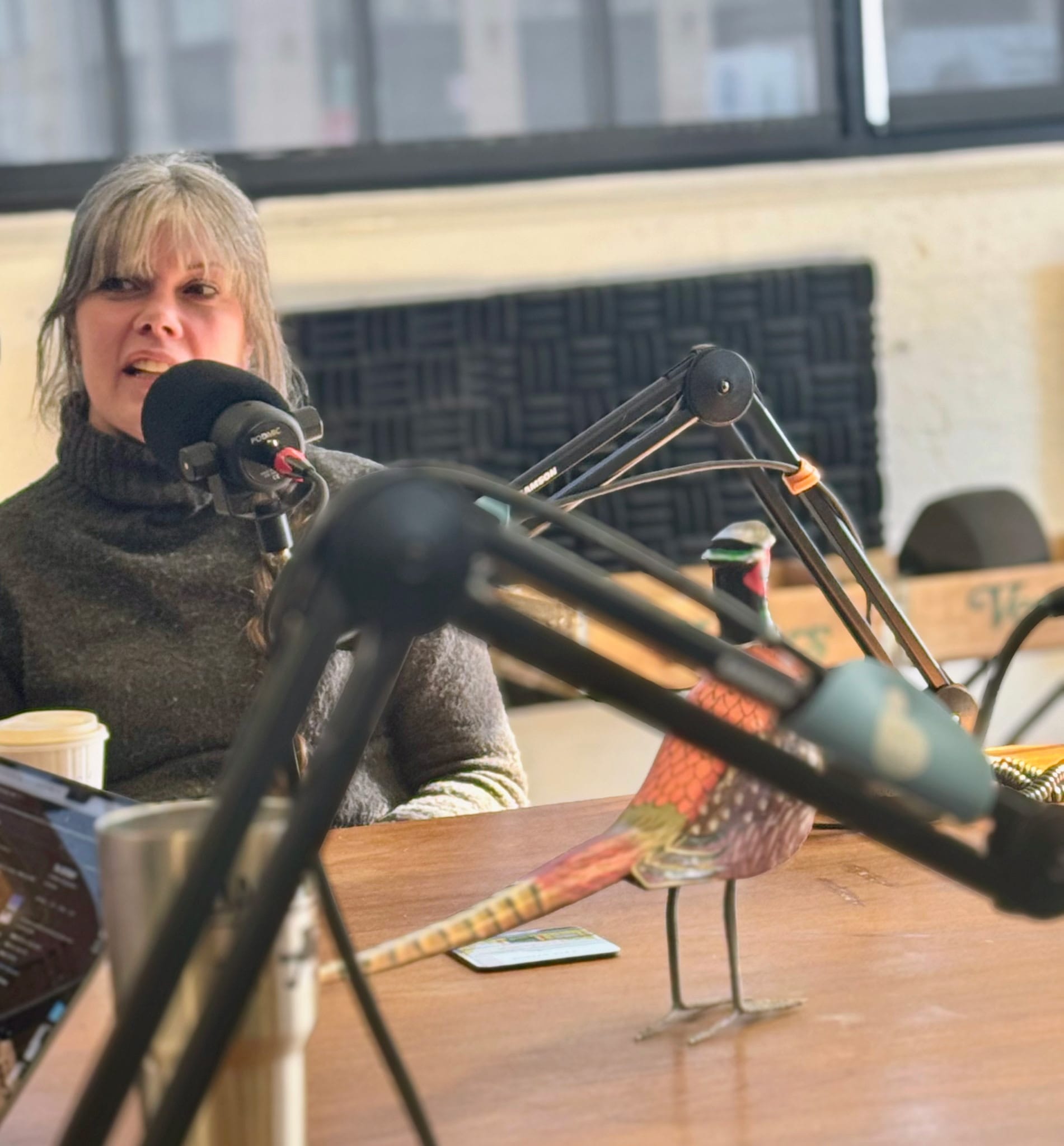
Dena Walker: Go in the backyard. That's, that's what we tell everyone if you, because people think that it's just the inside, and then I'm like, the backyard's like eight times bigger. Um, and make it all the way to the koi pond. So you get like a good feeling for it. Um, be ready to talk to somebody you probably wouldn't normally talk to or never talked to before. I, um, you know, some people are like, oh, I show up, and I never know if I'm going to talk to the hottest girl I've ever seen or some guy that just got out of jail. So it's literally everyone.
Jer Staes: That is fantastic. I couldn't think of any better way to describe the first time at the Old Miami. There are a bunch of things happening this year for the 45th. You've got all kinds of shows coming up, things, but there is something right on the horizon, like right away.
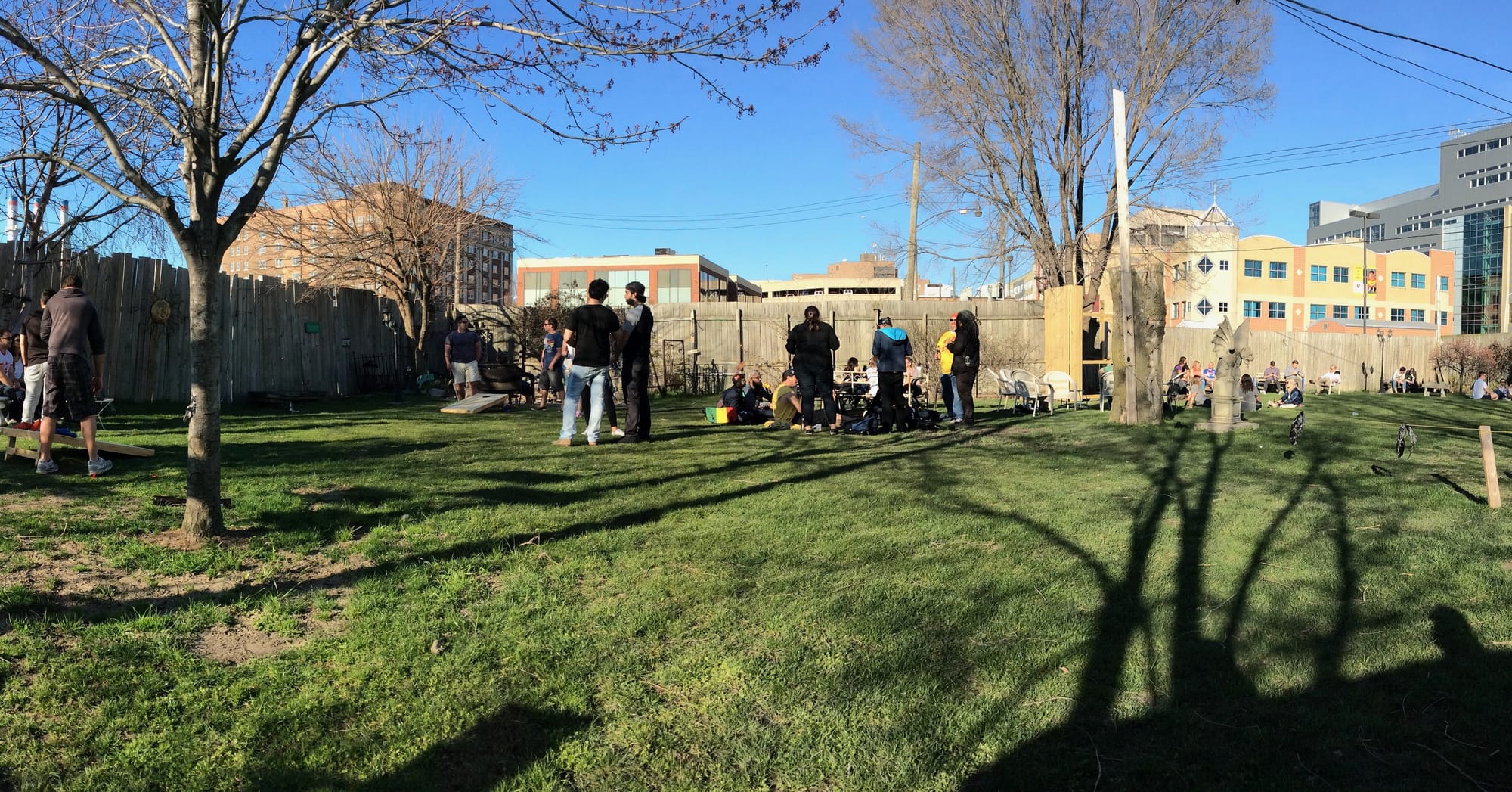
Dena Walker: Yes. On Saturday, we are having the party, which is, um, going to be from 3:00 to 10:00 PM. We're gonna have a Luge Festival in the backyard. Um, it's going to be a little bit more on the patio because the weather didn't hold with us for the backyard not being a little wet. Uh, so, um, but that we'll have, it's $20 to get in. All of the proceeds are going to, uh, Little Blessings, which is a ranch that provides horse therapy to veterans. Um, it's one of three charities, I think in the U.S. that do 52 weeks of therapy for veterans and their children and their spouses. And then for the $20, you can go out and sample about seven to eight luges.
Jer Staes: So, luges not like get on a sled and go down the hill.
Dena Walker: Seven or eight different shot, like, icy. Oh my god. What are they gonna pour in them? Four Roses?
Dena Walker: Uh, no. It's going to be Jameson, Crown, Absolut, uh, Bacardi, uh, and then, you will not be putting your mouth on the luge. They are going into a cup that. And then there will also be a Clu coffee bar with that. We're gonna have some coffee and tea to warm people up because even though it's warm today, I think it might be cold on Saturday. And then we're gonna have some bands play as we normally do on Saturday night. Um, probably take a picture in front of the bar again.
Jer Staes: Pretty epic to have that group photo. Well, go check out the Old Miami on Saturday and of course throughout the year. I will fully admit that I am somebody who will frequent this establishment because frankly it's a lot of fun and it's somewhere you can kind of decompress in the, in the city of Detroit. So Dena Walker and Mickey Lyons, thank you so much for your time on Daily Detroit. I really appreciate you both.
Dena Walker: Thank you.
Mickey Lyons: Thank you.








